Asunder casts its spell over its debut audience as it tells Sunderland's Somme story
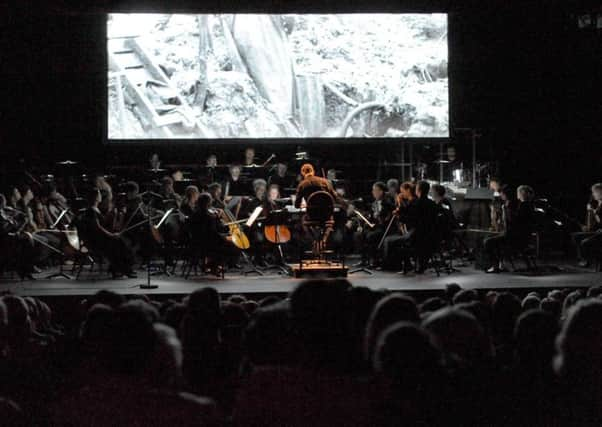

Asunder brings together an original score, archive footage and reports from the time of the conflict.
It made its debut at Sunderland Empire today with a double show.
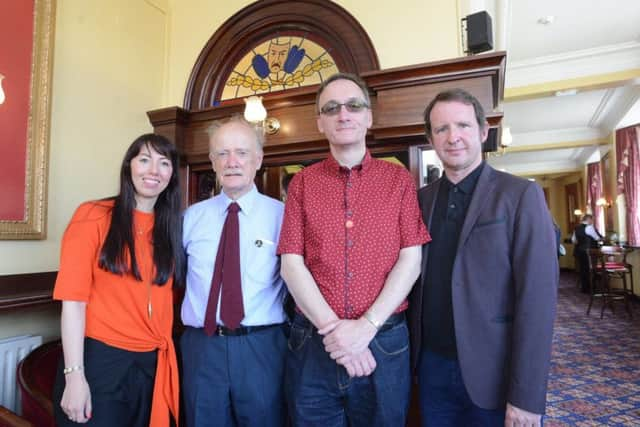

Advertisement
Hide AdAdvertisement
Hide AdThe project, led by music journalist and Saint Etienne band member Bob Stanley, saw Esther Johnson piece together historic film to tell the story of the city’s involvement in the First World War.
Among the characters featured are Sergeant George Thompson - a transport driver in the 7th Durham Light Infantry whose story was dubbed ‘the original War Horse’ after his diary told the tale of both him and his horse surviving the Somme; Bella Reay - a young munitions worker during World War One and also top striker in Blyth Spartans Ladies FC scoring 133 goals in one season and going on to play for England and Lizzie Holmes, the first woman in Horden to wear trousers.
Wearside’s Field Music joined forces with electronic duo Warm Digits to create its soundtrack, with Royal Northen Sinfonia performing it live alongside the bands’ members.
Sunderland-raised journalist and author Kate Adie narrates the piece, while Alun Armstrong voices excerpts from the Sunderland Echo and Shipping Gazette from the time.
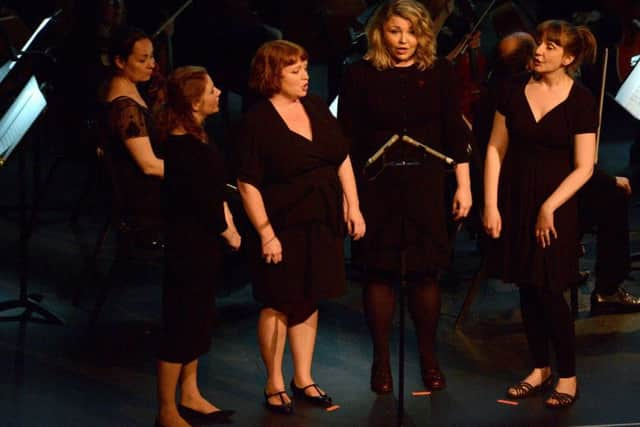

Advertisement
Hide AdAdvertisement
Hide AdThere was also a buzz around in the city centre in the build up to the shows, as activities linked to the events took place on the former Crowtree Leisure Centre site and inside Sunderland Minster, where the Empire’s Curious Connections group performed They Fall Like Snow, a reflection of what it might have been like to live in Sunderland.
Street artist Frank Styles also transformed a panel on the front of the Old Fire Station, which neighbours the theatre, to create a commemorative artwork.
In between performances on the debut day, Bob joined Dr Nancy Bruseker for a discussion on Vesta Tilley, the music hall performer who laid the foundation stone of the Empire in 1906.
He said: “It has been really hard work, but harder for the musicians because they have written the score.
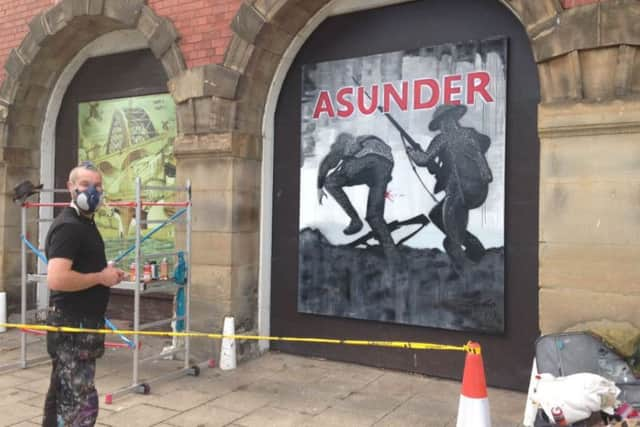

Advertisement
Hide AdAdvertisement
Hide Ad“It wasn’t until last week when they were all on the stage where all 30 musicians came together.
“I’m completely delighted about how it’s come together and with the two groups.
“I spent a bit of time in Sunderland in the 90s when I worked with Kenickie when I had them on my record label, and it’s the first time I’ve been back and it’s been really friendly.
“The reason why I got excited about it in the first place is that people don’t tend to know Sunderland’s history, it doesn’t really shout about it, and while people know about Tyneside, they don’t know as much about Wearside and it’s exciting people are going to find out about it.”
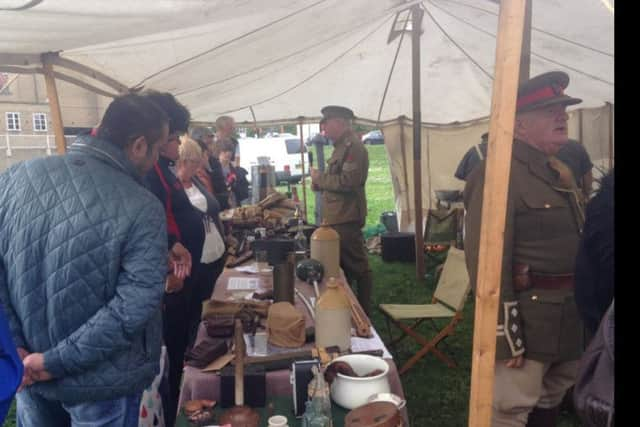

Advertisement
Hide AdAdvertisement
Hide AdPlans are being put together to take the show out to other venues, with the soundtrack already recorded.
It could also feature at film festivals, with discussions under way with event planners.
Asunder was commissioned by the Sunderland Cultural Partnership (SCP) and 14-18Now with the backing of the National Lottery via Arts Council England and the Heritage Lottery Fund.
It has also received support from the James Knott Trust, Culture Bridge North East and Sunderland Business Improvement District.
REVIEW
Advertisement
Hide AdAdvertisement
Hide AdMore than a century from where their wartime tales begin, Asunder brings the experiences of ordinary people who faced extraordinary times back to life.


The authoritative and empathetic tones of Sunderland-raised war reporter and author Kate Adie narrates, while the chatty, everyman voice of County Durham actor Alun Armtrong recounted the stories which made this paper at that time 100 years ago.
Archive footage from the streets, munition factory floors and the muddy, grim conditions that faced service men was cut with familiar, modern, scenes from the North East.
It was great to spot locations, from Roker seafront and its lighthouse to a Beamish Museum tram ride.
Advertisement
Hide AdAdvertisement
Hide AdIt was also fascinating to hear of the progress made by women as they fought for equality, with the strength of character shown by them and men inspiring.
While conflict clearly brought huge difficulties, and life would have been tough and tiring, the film also showed the humour and fun people still had as they faced the changes it brought about.
I especially liked the section which showed a solider dressed in armour, only for his mate to have a go at him with a shovel.
The storytelling was all drawn together with a beautiful score, performed live.
Advertisement
Hide AdAdvertisement
Hide AdThe appearance by the Cornshed Sisters, who sang The Rigs of Sunderland Fair, to the festival of activities around the show, from Easington Colliery Brass Band performances and museum displays, made it something special.